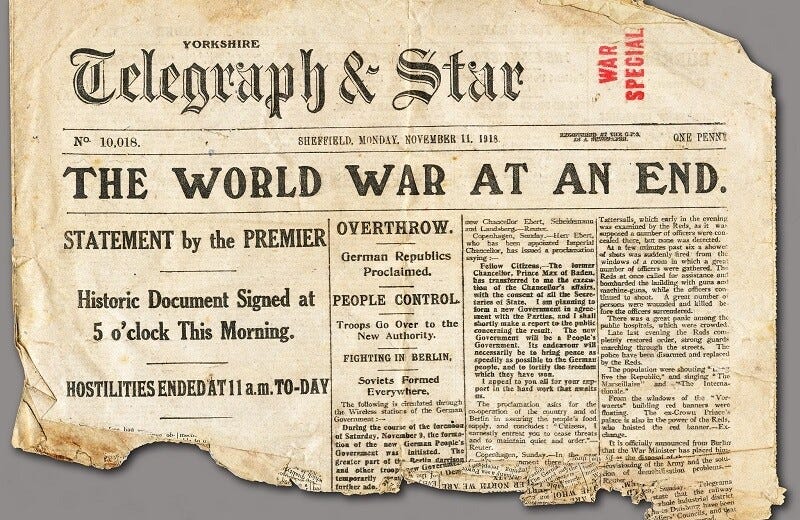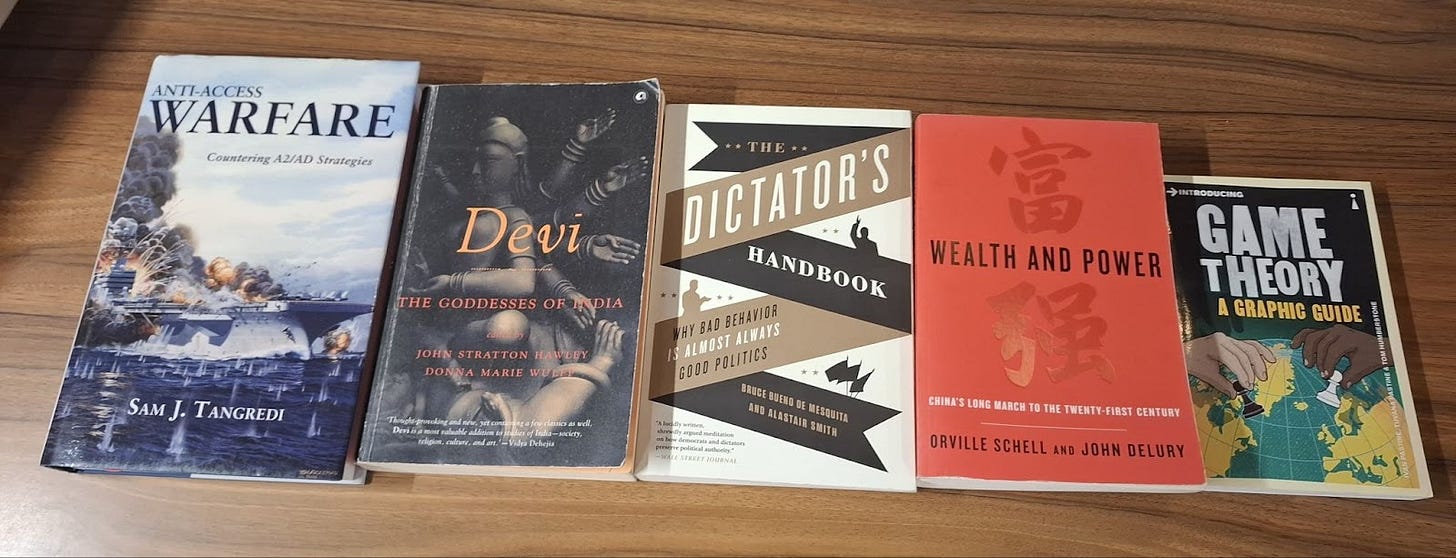And There Was A Great Calm: An Armistice in the Black Sea...
“Breathless they paused. Out there men raised their glance
To where had stood those poplars lank and lopped,
As they had raised it through the four years’ dance
Of Death in the now familiar flats of France;
And murmured, 'Strange, this! How? All firing stopped?'”
And so begins the poem ‘And There Was a Great Calm’ penned by famed Dorset-born English poet and novelist Thomas Hardy. The poem is the last of Hardy’s war poems, and was intended to mark Armistice Day (on 11 November 1918), signalling an end to World War I and effectively ending hostilities between the Allies and Germany.
An account from Captain Robert Casey (Battery C, 124th Field Artillery Regiment, 33rd Division) illustrates the range of emotion that emerged when the news of Armistice broke: “And this is the end of it. In three hours the war will be over. It seems incredible even as I write it. I suppose I ought to be thrilled and cheering. Instead I am merely apathetic and incredulous…”

The complex aftermath of the November 11 armistice extended beyond such incredulity. Fighting still continued on the Western Front, troops were slow to dismantle and four renewed armistices were undertaken before the Treaty of Versailles was eventually signed on June 28, 1919.
Surely too with the recent news of the “Black Sea Deal” between Russia and Ukraine, the implications (and emotions) are many and complex. To begin to unpack some of the context and repercussions of the agreement, we offer a brief explainer by our very own Indo-Pacific Studies Programme Staff Research Analyst, Anushka Saxena.
In her recent Op-Ed in The Indian Express, Anushka maps out the naval hostility in the region till date, the still unfolding developments and what hope we can hold for this nascent agreement:
With the new agreement brokered by the US, it is expected that even if not permanent, a long-term ceasefire in the Black Sea will finally allow for freedom of navigation and continuation of trade and commercial shipping. However, this time around, Russia, too, has learned its lesson, and has demanded that Western sanctions on its participation in global agricultural and fertiliser supply chains be immediately lifted, and a sanctioned Russian Bank be connected to the SWIFT international payment system – only then will it see the terms of the agreement through.
For a fulsome look at her astute analysis, follow the provided link.
P.S.: To read Hardy’s lauded war poem in its entirety, follow this link.
Disruptions Galore: Welcome to America…
In his recent column in The Mint, Takshashila Co-Founder, Narayan Ramachandran, shares his reflections on the disruptions caused by “Trump’s mercantilism”:
Trump’s mercantilism, cloaked in the academic garb of resetting the global trade order for America’s benefit, will turn out to be an ‘exorbitant disruption.’ If carried through fully, the inevitable consequences will be inflation and slow growth.
US debt and its fiscal deficit will be in no better shape in four years from now. It will become self-evident then that the emperor has no clothes. One can only hope that too many American institutions are not irreparably damaged in the process.
To read his timely analysis in full follow this link.
Heralding the ‘Indian Radius’: A Takshashila Newsletter on India’s Foreign Policy
In the maiden edition of their new released weekly newsletter, The Indian Radius, Takshashila’s Indo-Pacific Studies team examines, inter alia, the implications of the External Affairs Minister’s visit to the United Kingdom and Ireland, where issues ranging from technological comparison to labour mobility were amongst the agenda items for discussion.
To follow along with their timely, relevant and cutting-edge analysis each week, subscribe at this link.
First IPPR Edition of 2025: Internal Migration Trends to Green Energy Transitions!
The recent edition of the Indian Public Policy Review (IPPR) has been released and highlights key trends for policymakers to be mindful of in the year ahead, ranging from an analysis on the slowing down of internal migration to the fiscal realities (and challenges) around India’s transitioning to net-zero emissions by 2070.
Take a closer read here, dear reader.
All Things AI Governance: All Things Policy Episode of the Week!
What are some of the contours of the AI governance landscape? In their recent All Things Policy episode, Bharath Reddy (Associate Fellow, High-Tech Geopolitics Programme) and Rijesh Panicker (Fellow, High-Tech Geopolitics Programme) begin the work of outlining some of them.
In doing so, they argue for the need for a standardized framework to understand AI governance and provide a high-level overview of differences that exist across various jurisdictions.
To get an early look at the governance aspects they’ll cover in their forthcoming report, follow this link.
Takshashila Tabletop Trove!
For regular readers of the Dispatch, this section needs no introduction, but for our newer viewers, this section is intended to be a digital repository of the books that sit in Takshashila’s physical office space in Bengaluru, Karnataka. So what’s this week’s book theme? Read on!
This week's curated theme is: 'Treatises of Use in Both Monopoly and War', as pulled together by our Staff Research Analyst, Anushka Saxena.
Game Theory: A Graphic Guide (Ivan Pastine, Tuvana Pastine & Tim Humberstone)
Wealth and Power (Orville Schell and John Delury)
The Dictator's Handbook: Why Bad Behavior is Almost Always Good Politics (Bruce Bueno De Mesquita & Alastair Smith)
Devi: The Goddesses of India (John Stratton Hawley & Donna Marie Wulff)
Anti-Access Warfare: Countering A2/AD Strategies (Sam J. Tangredi)
This edition of the Dispatch was written by Kripa Koshy, Programme Manager for Takshashila’s Post Graduate Programme in Public Policy.


